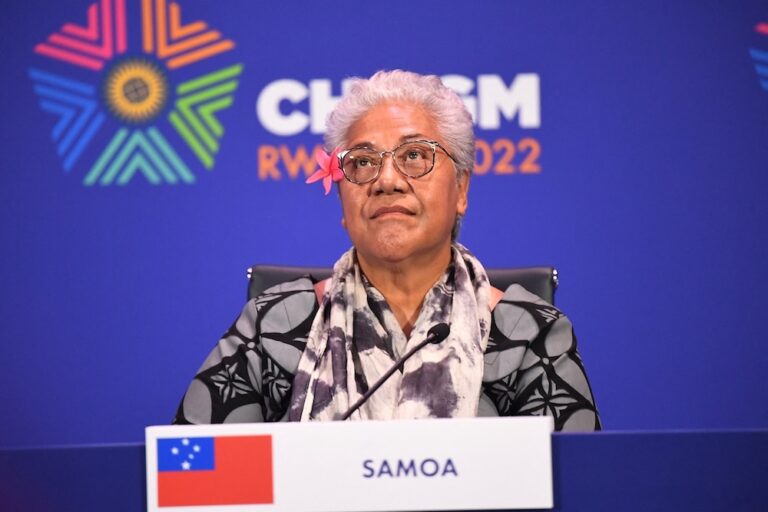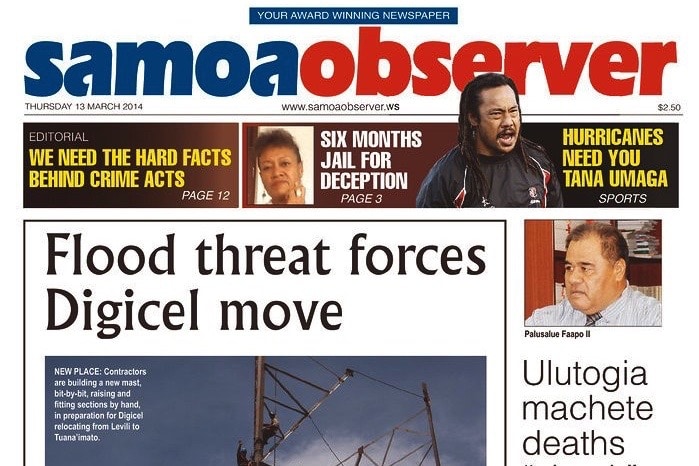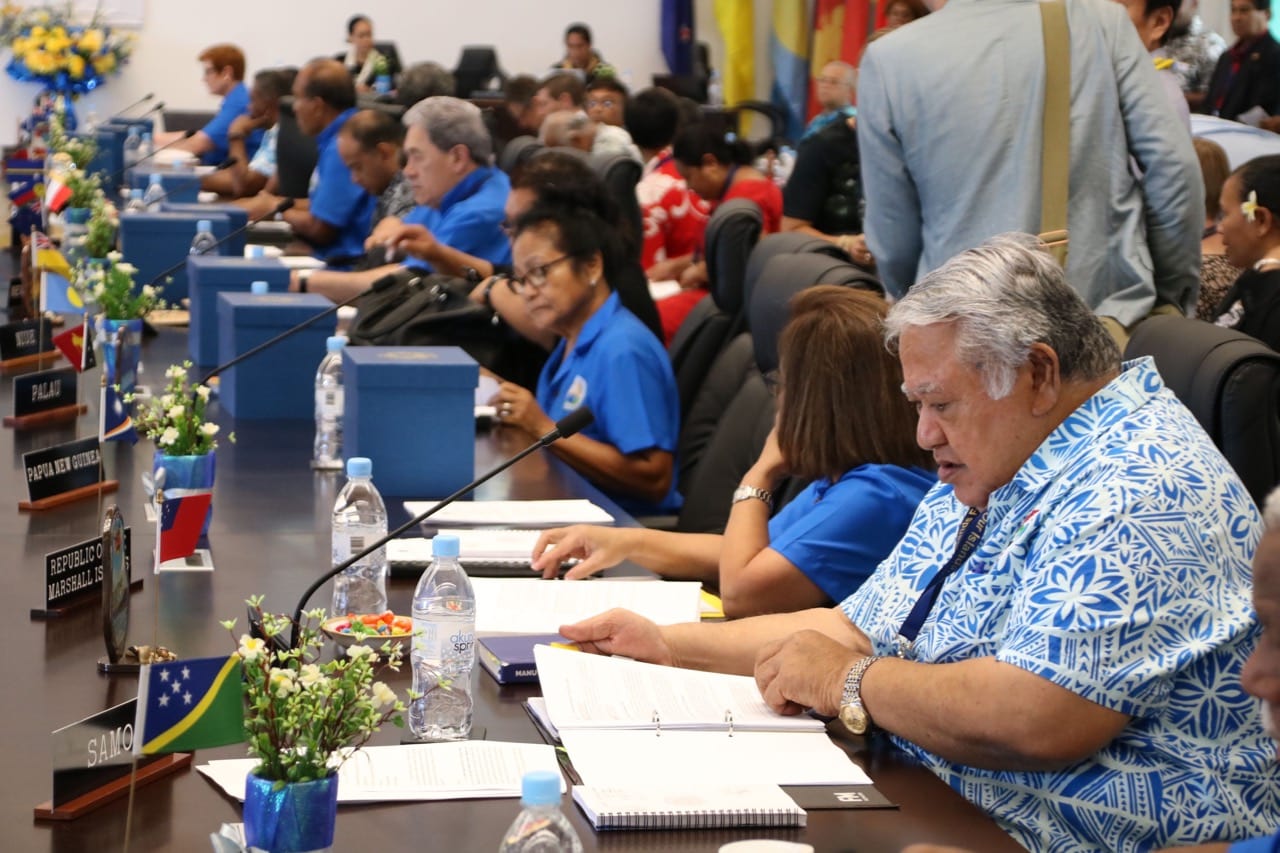The Samoan speaker of parliament called on media to stop interviewing members of parliament outside the house and rely solely on official records; he warned that reporters could be charged under 1960 laws that carry a maximum sentence of six months in prison, a $100 fine, or both.
A hard earned reputation for good governance in Samoa is at risk of being lost if recent threats and bans against media persist, warned the Pacific Freedom Forum on 21 June 2013.
“The government of Samoa prides itself on a regional reputation for transparency and accountability,” said PFF Chair Titi Gabi.
“Good governance however loses pace as soon as threats to ban news media are made,” she says.
During the week of 17 June, Speaker of Parliament La’auli Leuatea Polata’ivao accused news media of misquoting debate in the house.
He called on media to stop interviewing members of parliament outside the house and rely solely on official Hansard records of the debate.
Describing access by news media to Parliament as a “privilege”, La’auli said that reporters could be charged under 1960 laws that carry a maximum sentence of six months in prison, a $100 fine, or both.
Based in Port Moresby, Papua New Guinea Gabi said that, “We fear the threats from the Speaker shows an outdated understanding of the role of media , as outdated as the law he is quoting from, one from the colonial era, two years before independence in 1962.”
PFF co-Chair Monica Miller said the Speaker of Samoa was mistaken to think of access to Parliament as a privilege for journalists doing their job.
“Freedoms of movement and speech are fundamental human rights that Samoa has proudly proclaimed as a constitutional democracy and full member of the international community for the last 51 years,” she said.
“His comments betray a fundamental misunderstanding of the necessary separation of powers between parliament, government, courts and the press,” said Miller, based in Pago Pago.
“News reporters are not Hansard reporters, for a very good reason – they are there to ask questions that protect the public interest – not accept everything members of parliament say, without question.”
Outside of Parliament, an opposition MP confirmed to local media that he had not been misquoted, and that news reports of his accusations against government were, indeed, accurate.
Local media say that they have never been able to get copies of the official Hansard or even order papers from Parliament staff.
Under parliamentary privilege, fair and accurate reporting of parliamentary debate is fully protected, by law.
An earlier PFF release questioned the independence of police in Samoa after they followed “advice” from the Prime Minister not to speak with media anymore.
Prime Minister Tuilaepa Sailele Malielegaoi later claimed he had “instructed” police to reverse the ban and answer questions.


